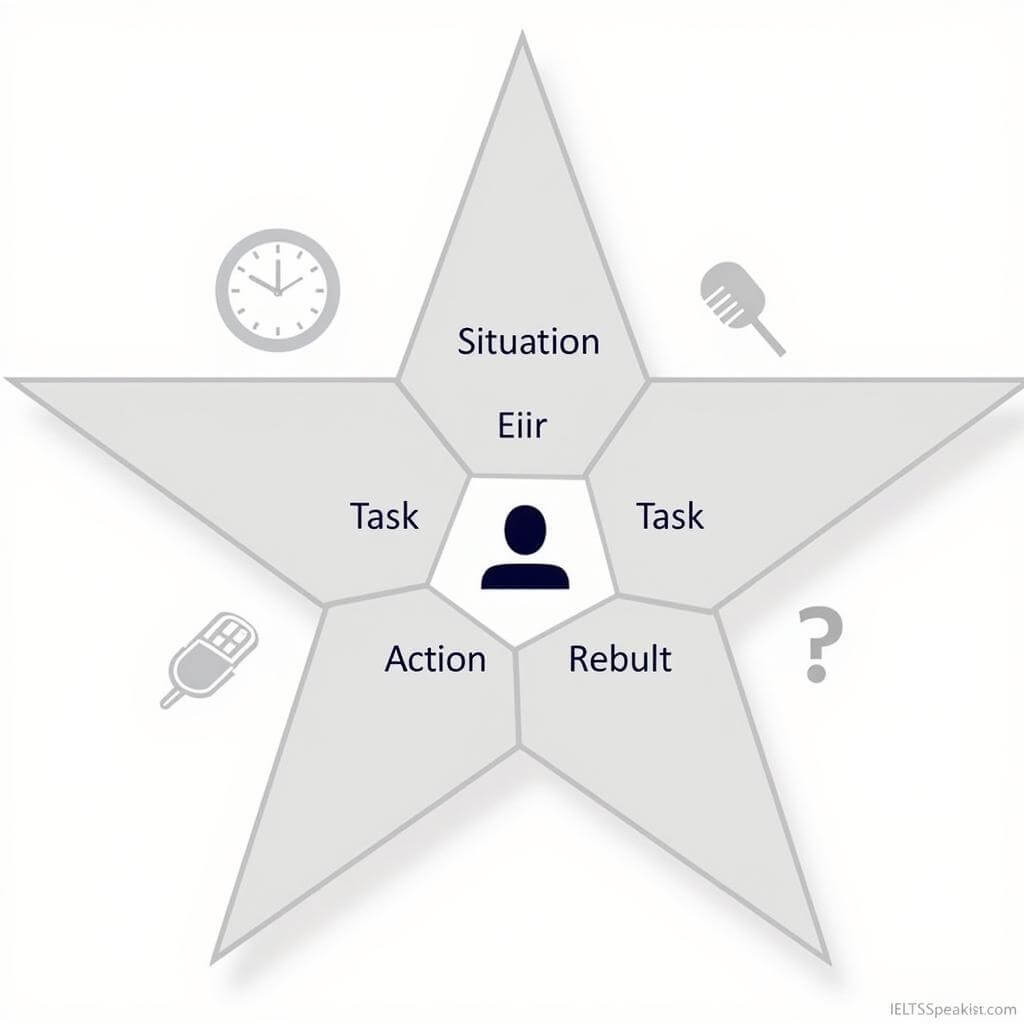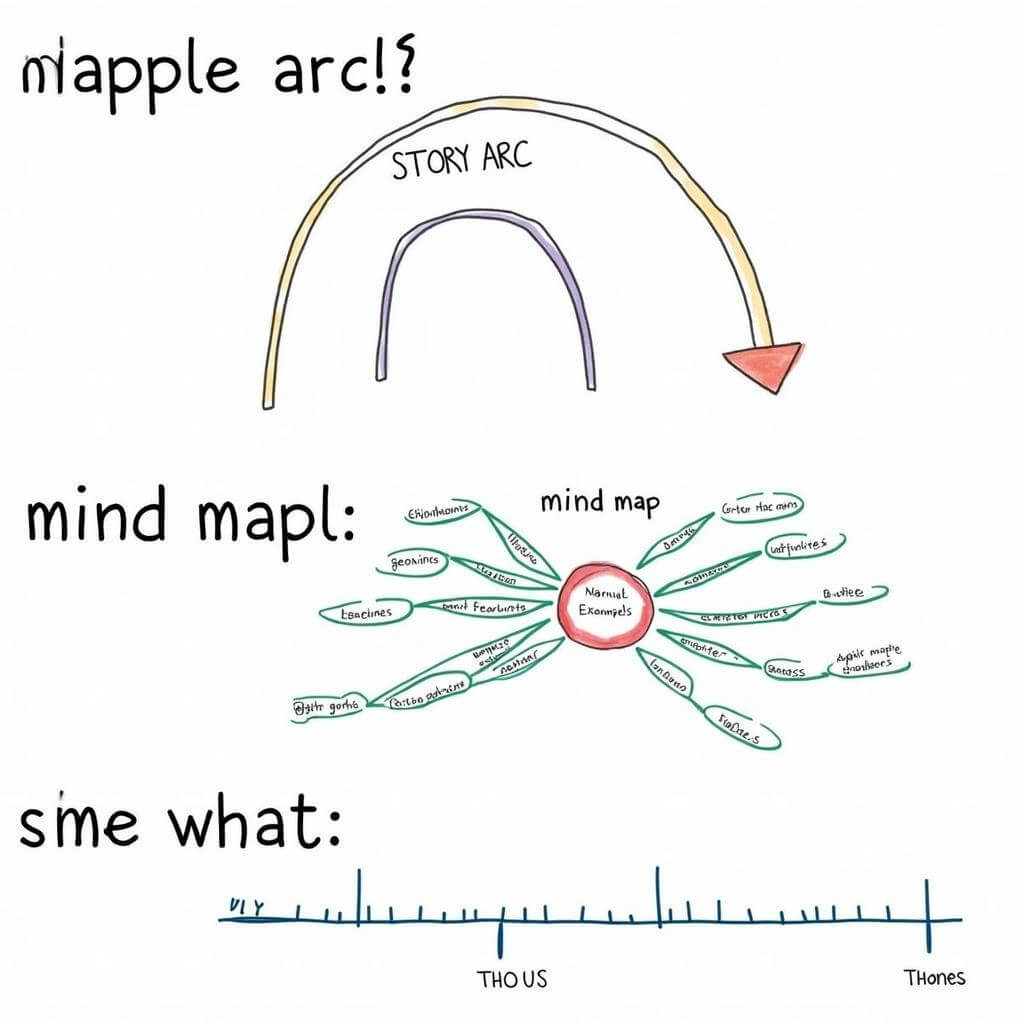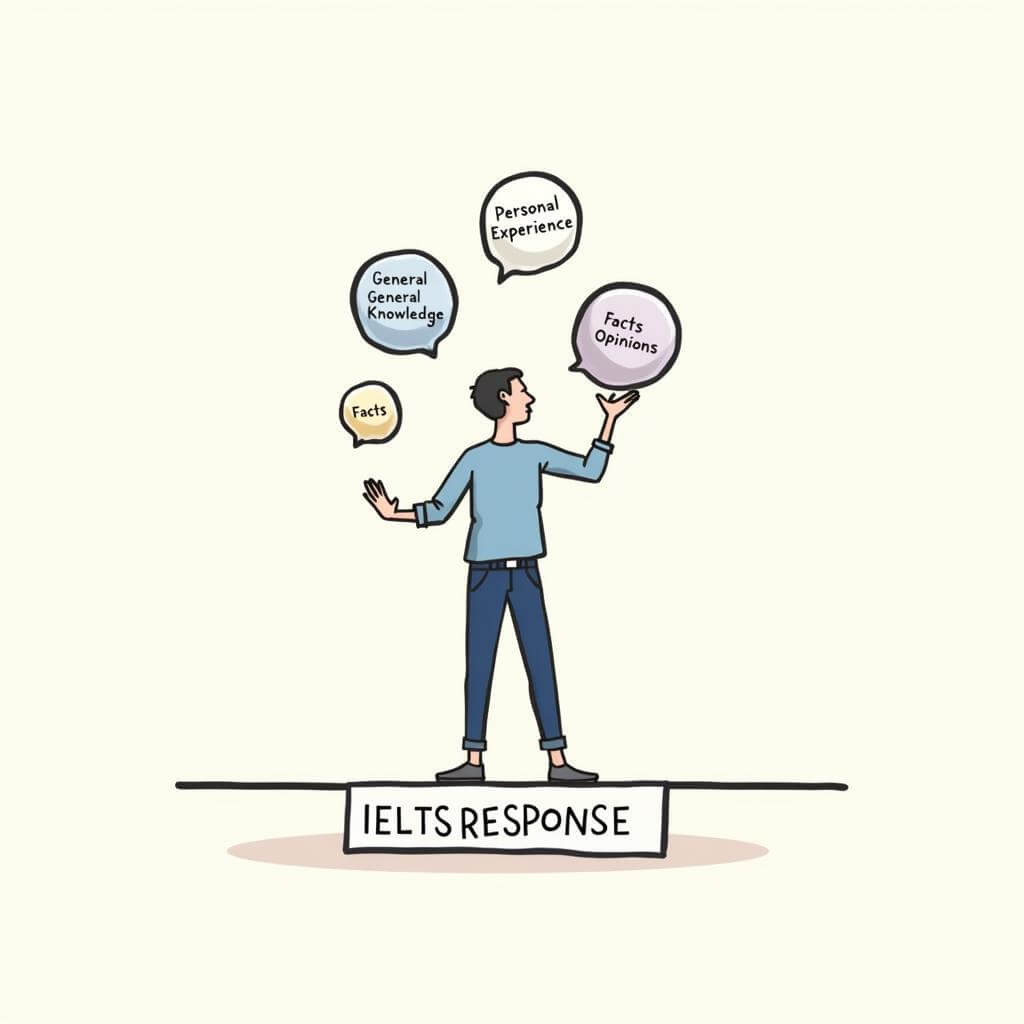The IELTS Speaking test can be a challenging experience, especially when it comes to handling follow-up questions. These unexpected queries often catch candidates off guard, potentially impacting their performance. However, with the right strategies and practice, you can confidently navigate this aspect of the test and showcase your English language skills effectively.
Nội dung bài viết
- Understanding the Purpose of Follow-up Questions
- Strategies for Handling Follow-up Questions
- 1. Active Listening
- 2. Expanding Your Answers
- 3. Bridging Techniques
- 4. Managing Your Speaking Time
- 5. Maintaining Relevance
- Dealing with Challenging Follow-up Questions
- Practice Makes Perfect
- Common Pitfalls to Avoid
- Conclusion
- FAQ
- Q1: How many follow-up questions can I expect in the IELTS Speaking test?
- Q2: What should I do if I don’t understand a follow-up question?
- Q3: Is it okay to take a moment to think before answering a follow-up question?
- Q4: How can I improve my ability to think quickly in English for follow-up questions?
- Q5: What if I realize I’ve misunderstood a follow-up question after I’ve started answering?
Understanding the Purpose of Follow-up Questions
Follow-up questions serve multiple purposes in the IELTS Speaking test. They allow examiners to:
- Assess your ability to expand on ideas
- Evaluate your vocabulary range and grammatical accuracy
- Test your comprehension and quick thinking skills
- Ensure you’re not relying on memorized responses
By understanding these objectives, you can better prepare for and respond to follow-up questions with confidence.
How to handle IELTS speaking part 1 personal questions
Strategies for Handling Follow-up Questions
1. Active Listening
One of the most crucial skills in handling follow-up questions is active listening. Pay close attention to the examiner’s questions and make sure you understand them fully before responding.
- Focus on keywords in the question
- Ask for clarification if needed (e.g., “Could you please repeat that?”)
- Take a brief moment to process the question before answering
2. Expanding Your Answers
When faced with a follow-up question, aim to provide a detailed response that demonstrates your language proficiency.
- Use the STAR method (Situation, Task, Action, Result) to structure your answers
- Provide examples to support your points
- Explain your reasoning or thoughts behind your answer
 IELTS Speaking: STAR Method for Follow-up Questions
IELTS Speaking: STAR Method for Follow-up Questions
3. Bridging Techniques
Sometimes, you may not have a direct answer to a follow-up question. In such cases, use bridging techniques to maintain a smooth conversation.
- Acknowledge the question (e.g., “That’s an interesting question…”)
- Relate it to something you do know (e.g., “While I’m not an expert on that specific topic, I can tell you about…”)
- Pivot to a related subject you’re more comfortable discussing
4. Managing Your Speaking Time
Effective time management is crucial when handling follow-up questions. Managing speaking time effectively can help you provide comprehensive answers without rambling.
- Aim for responses that are 30-60 seconds long
- Use discourse markers to structure your answer (e.g., “Firstly…”, “Moreover…”, “In conclusion…”)
- Practice pacing yourself during mock interviews
5. Maintaining Relevance
It’s essential to stay on topic in IELTS speaking answers, especially when dealing with follow-up questions. Ensure your responses directly address the question at hand.
- Refer back to the question in your answer
- Use linking phrases to connect your ideas to the original question
- Avoid going off on tangents or introducing unrelated topics
Dealing with Challenging Follow-up Questions
Sometimes, you may encounter difficult follow-up questions that seem particularly challenging. Here are some strategies to handle these situations:
- Stay calm and composed
- Paraphrase the question to buy time and ensure understanding
- Use hedging language if you’re unsure (e.g., “In my opinion…”, “As far as I know…”)
- Draw from personal experiences or observations if you lack specific knowledge
 IELTS Speaking: Handling Challenging Follow-up Questions
IELTS Speaking: Handling Challenging Follow-up Questions
Practice Makes Perfect
As with all aspects of IELTS preparation, practice is key to improving your ability to handle follow-up questions. Here are some ways to hone your skills:
- Engage in English conversations with friends or language exchange partners
- Record yourself answering sample questions and review your responses
- Participate in mock IELTS Speaking tests
- Watch IELTS Speaking videos and practice responding to the questions asked
Dr. Emma Thompson, an IELTS expert with over 15 years of experience, emphasizes the importance of preparation:
“The key to mastering follow-up questions is not just about knowing the answers, but about developing the skills to think on your feet. Regular practice in various contexts will help you build the confidence and fluency needed to excel in this part of the test.”
Common Pitfalls to Avoid
When handling follow-up questions, be aware of these common mistakes:
- Giving overly brief or one-word answers
- Repeating the same information from your initial response
- Panicking or freezing when faced with unexpected questions
- Ignoring parts of multi-part questions
- Using memorized responses that don’t directly answer the question
By being mindful of these pitfalls, you can focus on providing genuine, thoughtful responses that showcase your English language abilities.
Conclusion
Mastering the art of handling IELTS Speaking follow-up questions is a crucial skill that can significantly impact your overall performance. By implementing the strategies discussed, practicing regularly, and staying calm under pressure, you can approach this aspect of the test with confidence. Remember, the goal is not just to answer the questions, but to demonstrate your ability to communicate effectively in English. With dedication and the right approach, you’ll be well-equipped to tackle any follow-up question that comes your way in your IELTS Speaking test.
How to handle follow-up questions
FAQ
Q1: How many follow-up questions can I expect in the IELTS Speaking test?
A: The number of follow-up questions can vary, but you can typically expect 2-3 follow-up questions for each main question in Parts 1 and 3 of the Speaking test.
Q2: What should I do if I don’t understand a follow-up question?
A: If you don’t understand, it’s perfectly acceptable to politely ask the examiner to repeat or rephrase the question. For example, you could say, “I’m sorry, could you please repeat that?” or “Could you rephrase the question, please?”
Q3: Is it okay to take a moment to think before answering a follow-up question?
A: Yes, it’s absolutely fine to take a brief pause to gather your thoughts. A short pause (2-3 seconds) can actually demonstrate that you’re considering the question carefully.
Q4: How can I improve my ability to think quickly in English for follow-up questions?
A: Regular practice is key. Try engaging in English conversations on various topics, playing word association games, or participating in impromptu speaking exercises to improve your quick-thinking skills in English.
Q5: What if I realize I’ve misunderstood a follow-up question after I’ve started answering?
A: If you realize you’ve misunderstood, it’s best to address it directly. You can say something like, “I apologize, I may have misunderstood your question. Could you please ask it again?” Then, provide a new, relevant answer to the correct question.


